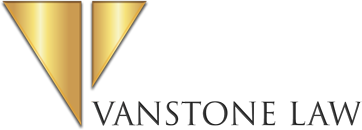In Saskatchewan, residential rentals are governed by a legislative framework designed to ensure the rights and responsibilities of both landlords, tenants, and guests. Navigating the realm of short-term rental and long-term tenant arrangements involves different legal frameworks in Saskatchewan. A legal advisor can ensure you are utilizing the right approach according to the legislation to deal with problems. For example, dealing with an overholding residential tenant versus an Airbnb guest requires different approaches.
Long-Term Rentals: The key piece of legislation that regulates long-term rental arrangements is The Residential Tenancies Act. This comprehensive Act outlines the rights, obligations, and procedures for both landlords and tenants in various aspects of the rental relationship, including rent payments, lease agreements, eviction processes, repairs, and maintenance. The Act provides a structured approach to resolving disputes, setting guidelines to maintain a fair and balanced rental environment for all parties involved. Additionally, the legislation promotes transparency, stability, and accountability in the rental market, fostering functional living arrangements between tenants and landlords.
Short-Term Rentals: The key piece of legislation that regulates Hotels, Boarding Houses, and Lodging House Keepers is The Hotel Keepers Act. In addition to the requirements of this legislation, in many jurisdictions in Saskatchewan, Airbnb and similar short-term rental platforms often fall within existing frameworks related to hospitality, zoning, business licensing, and taxation. This might include adhering to local bylaws, safety regulations, and tax requirements. Operators may need to obtain permits or licenses, meet health and safety standards, and collect and remit applicable taxes such as the Provincial Sales Tax (PST) and the federal Goods and Services Tax (GST).
While it might seem simple to determine when a short-term rental becomes a long-term rental, it is not! To ensure a comprehensive understanding of your rights and responsibilities under the governing legislation, as well as to meticulously draft and review leases and agreements, consider enlisting the guidance of a skilled lawyer to ensure smooth operations and to protect your investment into the future.
An excellent and comprehensive lease agreement can be used again and again. Collaboration between landlords, tenants, and legal professionals is pivotal in fostering a harmonious rental environment. This synergy serves as a cornerstone, enabling legal rights of all stakeholders to be upheld, conflicts to be effectively resolved, and properties to be maintained in optimal condition.
